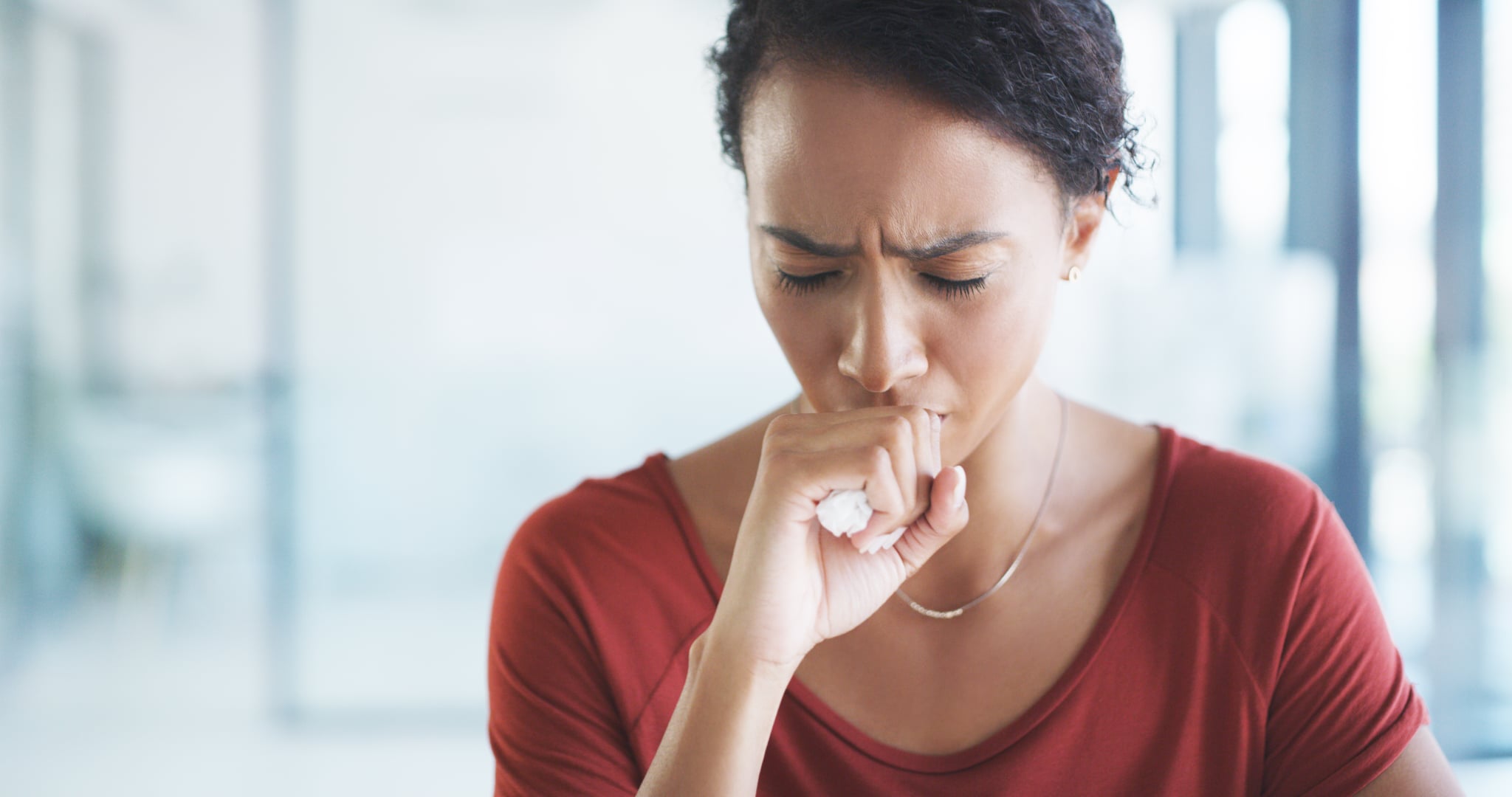
We all have moments when something we’re eating or drinking goes down the “wrong pipe,” throwing us into a coughing fit. “Swallowing food, even liquids or our own saliva, is a very, very complex process, and at every step of that process — and there are a lot of them — errors can happen, resulting in a variety of symptoms,” Brian Riff, MD, a gastroenterologist and director of endoscopy at Associated Gastroenterology Medical Group in California, told POPSUGAR. Coughing is a natural response when something goes wrong in this process. It’s your body’s way of preventing foreign particles like bacteria, food, and gastric acid from entering the lungs.
However, if you find that you frequently cough after eating, it could be a sign of an underlying condition, rather than a natural reflex. One of the most common causes is gastroesophageal reflux disease (GERD), Dr. Riff explained. For people with GERD, acid can come back up from the stomach, into the esophagus, and spill over into the trachea, triggering a cough. Heartburn (the feeling of acid coming back up the chest), a sore throat, and hoarseness are also common symptoms of GERD.
While coughing after eating could point to GERD — or in some cases, dysphagia, a difficulty of swallowing — it isn’t always a major cause for concern. Some particles and ingredients can stimulate our cough centers, producing a cough reflex, Dr. Riff noted. It should come as no surprise that spicy foods are one of the most common culprits, because of the ingredient capsaicin. Foods high in citric acid (like lemons and limes), as well as acetic acid (found in things like vinegar or pickled vegetables), have also proven to tickle our cough centers.
Though giving up your favorite foods is never fun, paying attention to your diet can help eliminate your post-meal cough. Additionally, eating slowly, sitting up straight while you eat, and taking small sips of water between bites can all reduce your chances of coughing. If you’ve tried these things, or you’re concerned that your cough could be something more serious, Dr. Riff recommends speaking with your doctor.
